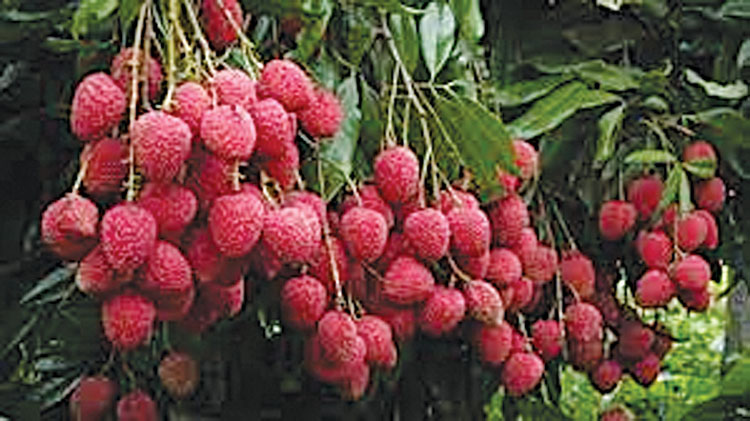Lucknow, July 17 (FN Agency) Uttar Pradesh is set to join Bihar as a major player in the lychee market in the coming years.The agricultural climate zones in Bihar’s lychee-growing districts, such as Muzaffarpur, Samastipur, and Champaran, are strikingly similar to those in UP’s Purvanchal region. This similarity positions Purvanchal as a natural leader in lychee cultivation.Chief Minister Yogi Adityanath’s home district, Gorakhpur, is part of Purvanchal. This has led to a heightened focus on lychee cultivation by the government and its agricultural institutions. With this strategic push, UP aims to enhance its presence and competitiveness in the lychee market, benefiting both local farmers and the state’s agricultural economy. When planting lychee trees, it is essential to use soil from under an old lychee tree in the planting pit.
This soil contains mycorrhiza, which is crucial for the growth of new lychee plants and reduces the chances of the plants dying.A senior scientist at the Krishi Vigyan Kendra Belipar, Gorakhpur, under Acharya Narendra Deva University of Agriculture and Technology, Dr SP Singh recommends the lychee varieties of Rose Scented, Shahi, China, Early Bedana, Late Bedana, Gandaki Sampada, and Gandaki Lalima for Purvanchal’s agricultural climate zone. The Center of Excellence aims to provide farmers with saplings of each of the high-yielding, quality varieties and distribute nursery-grown plants to the farmers. The Sustainable Human Development Association, with support from Tata Trust, the National Lychee Research Center Muzaffarpur, and the Agricultural Science Center Kushinagar, has been working on lychee cultivation for the past few years.
According to the association’s head, VM Tripathi, they receive planting materials, technical support, and other assistance as needed from these institutions. With their help, around 40 to 50 acres of Shahi and China lychee orchards have been developed. Farmers also grow intercrops according to the season. Dr Singh suggests that farmers can grow intercrops in the empty spaces between the rows and plants in newly planted orchards. In the first few years, they can grow cauliflower, cabbage, radish, carrot, fenugreek, spinach, and vine vegetables. When the plants provide more shade, they can grow turmeric, ginger, and elephant foot yam in shaded areas. This practice increases the income of orchard owners and improves orchard management through constant care, ultimately resulting in better yield and quality of fruits.

